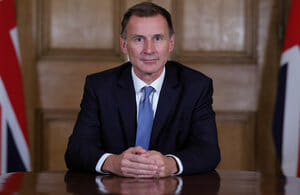Chancellor Jeremy Hunt today revealed that the freezing of the £325,000 exemption allowance (or ‘nil-rate band’) for inheritance tax will be extended for two years from the previously announced 2025/26 until 2027/28. The allowance has been frozen since 2009, drawing many more estates and greater proportions of household wealth into paying IHT at 40%.
The additional residence nil-rate band of £175,000, which was introduced in 2017 and applies when a home is left to a direct descendant, is also frozen until 2028.
Inflation and the growth in the value of assets like property and investments have meant that IHT paid to HMRC has ballooned from £2.3billion in 2009/10 to £6.1 billion in 2021/22.[2] Inheritance tax receipts for the period April to September 2022 totalled £3.5 billion, HMRC data revealed recently – an increase of £0.4 billion or 13% on the same period a year earlier.[3]
Julia Rosenbloom, Tax Partner at wealth management and professional services firm Evelyn Partners, says:
‘The freezing of both nil-rate bands has already seen Treasury receipts from IHT grow rapidly, thanks to the effects of asset price inflation. Not only do more families with unremarkable levels of wealth get drawn into the IHT net but those estates that would expect to exceed the threshold see more and more of their assets subject to taxation.
‘Extending the main threshold freeze to 2028 will entrench nearly 20 years of stealth tax increases on the transfer of wealth and means ever more modest estates are facing tax liabilities. Even if asset prices moderate during that period, more IHT will be paid than if thresholds had been increased with inflation.
‘As for the residence nil-rate band, while its introduction in 2017 reduced the reach of IHT for a few years, that trend has turned around thanks in part to soaring property prices across the country. The average house price in the UK has nearly doubled since April 2009 from £155,852 to £295,000 in September this year. For London, the average house price has more than doubled in the same period from £245,341 to £544,000.
‘Families who find that the freeze means their assets are being dragged over the IHT threshold can take some relatively easy steps to stay the right side of it, or to mitigate liability. These include making a will, using allowances smartly, lifetime gifting and putting life assurance policies into trust. Not only will it save the next generation from overpaying tax on the transfer of wealth but it could also prevent some admin headaches at probate – especially as the IHT bill usually has to be settled before the estate’s assets can be liquidated and disbursed.’
Possible gain for the Treasury
The original freeze in the IHT threshold to 2025/26 was announced in the Spring Budget of 2021 by Sunak who was then Chancellor. That policy was set to raise £1billion over four years, according to the Treasury at the time, but that figure is now likely to be far higher thanks to soaring inflation.
The Institute for Fiscal Studies has estimated that extending the threshold for two years could raise as much as £500million if inflation returns to the target level of 2% in a couple of years as the BoE expects, but much more if it does not.
















